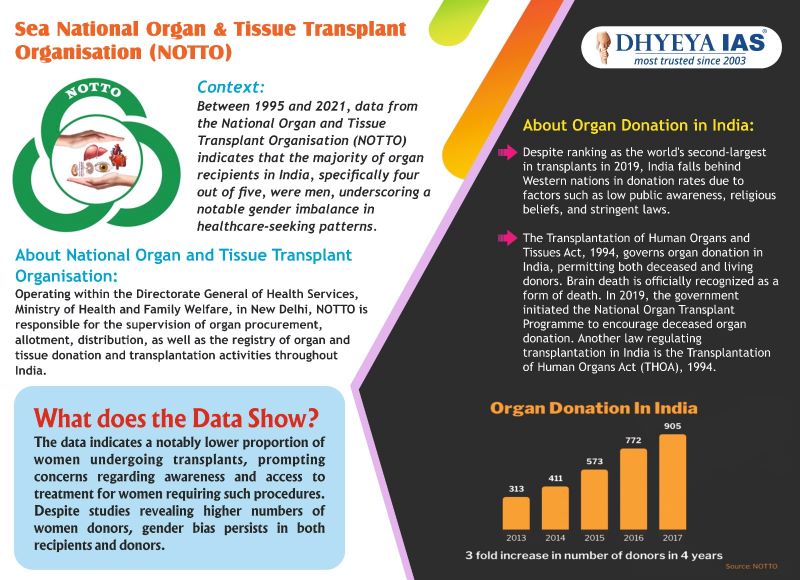
Context:
Between 1995 and 2021, data from the National Organ and Tissue Transplant Organisation (NOTTO) indicates that the majority of organ recipients in India, specifically four out of five, were men, underscoring a notable gender imbalance in healthcare-seeking patterns.
What does the Data Show?
The data indicates a notably lower proportion of women undergoing transplants, prompting concerns regarding awareness and access to treatment for women requiring such procedures. Despite studies revealing higher numbers of women donors, gender bias persists in both recipients and donors.
About National Organ and Tissue Transplant Organisation:
Operating within the Directorate General of Health Services, Ministry of Health and Family Welfare, in New Delhi, NOTTO is responsible for the supervision of organ procurement, allotment, distribution, as well as the registry of organ and tissue donation and transplantation activities throughout India.
About Organ Donation in India:
Despite ranking as the world's second-largest in transplants in 2019, India falls behind Western nations in donation rates due to factors such as low public awareness, religious beliefs, and stringent laws.
The Transplantation of Human Organs and Tissues Act, 1994, governs organ donation in India, permitting both deceased and living donors. Brain death is officially recognized as a form of death. In 2019, the government initiated the National Organ Transplant Programme to encourage deceased organ donation. Another law regulating transplantation in India is the Transplantation of Human Organs Act (THOA), 1994.
